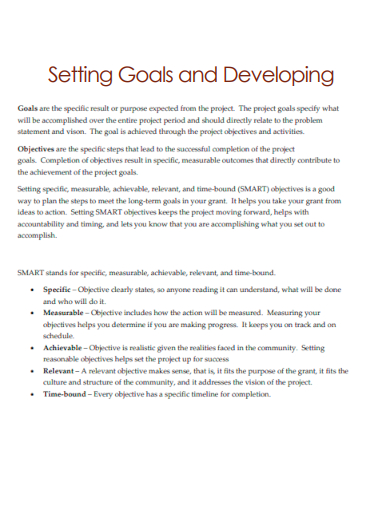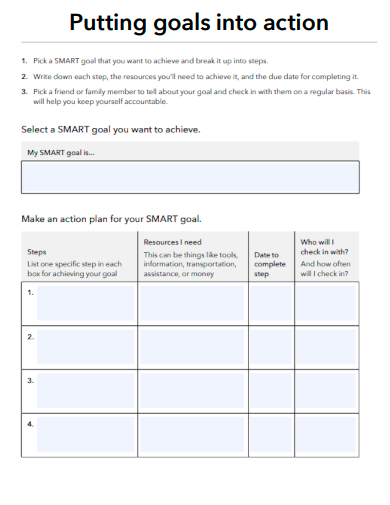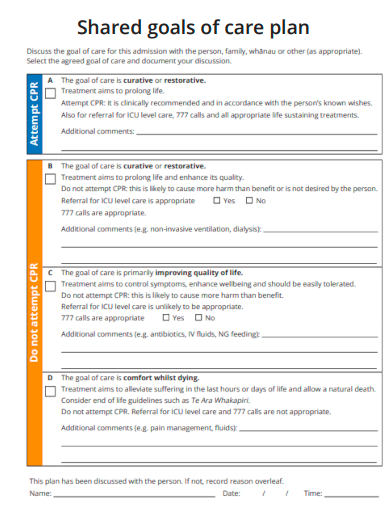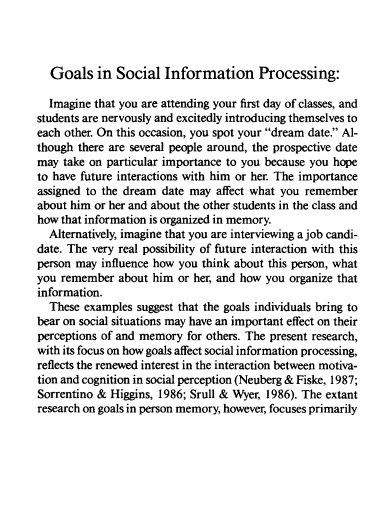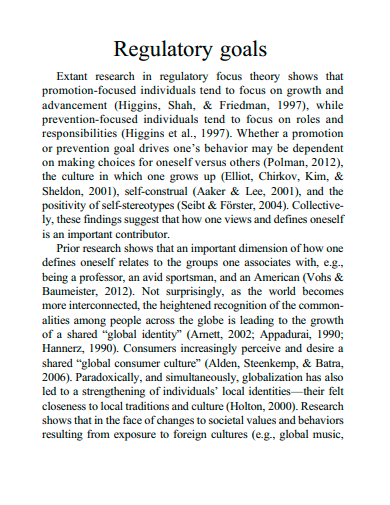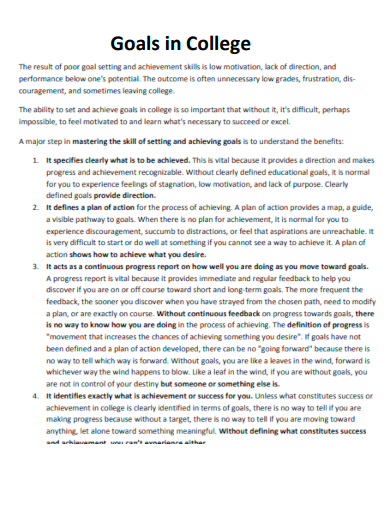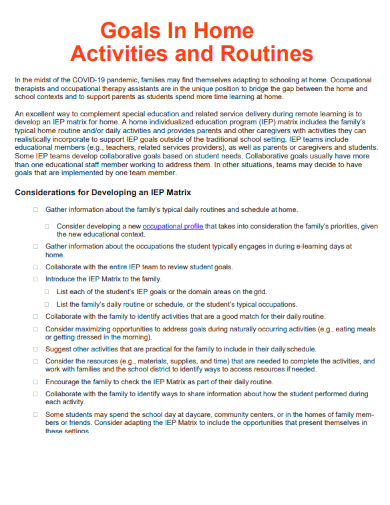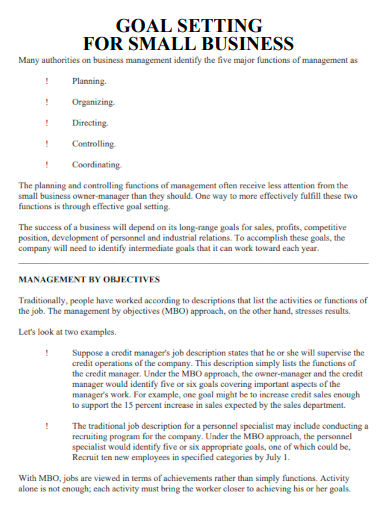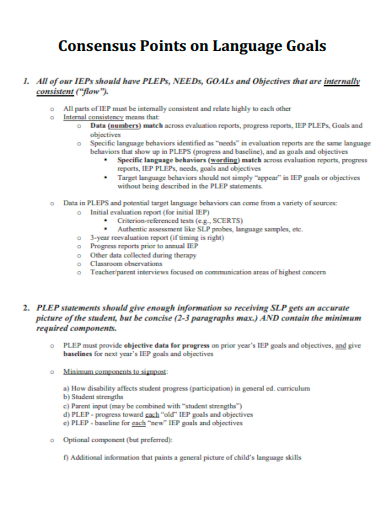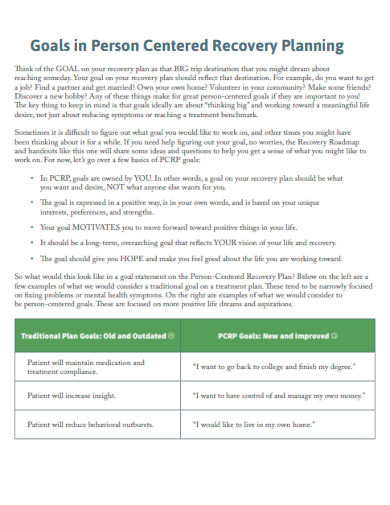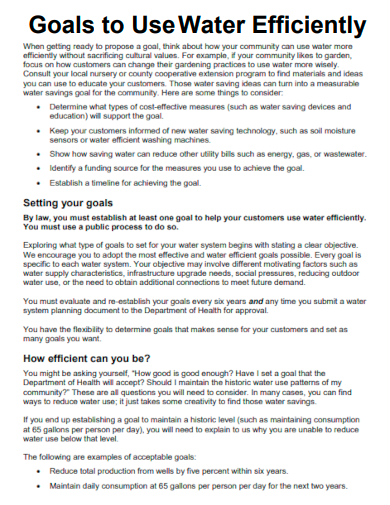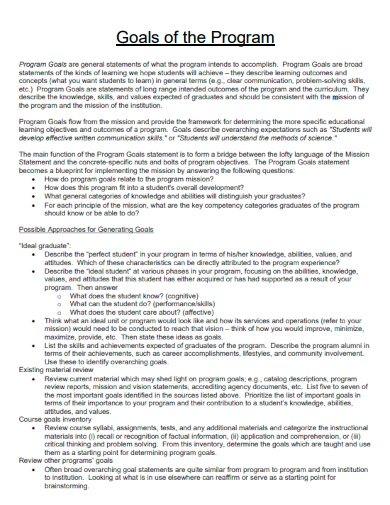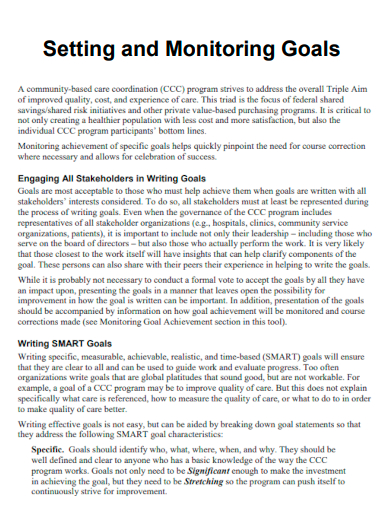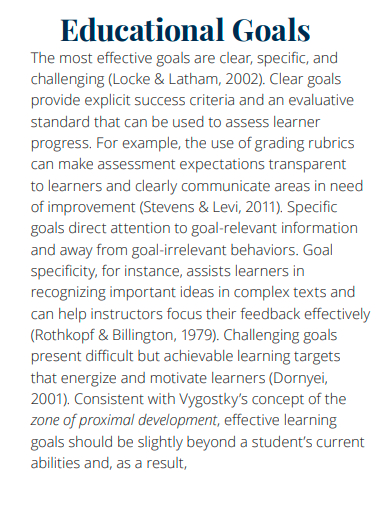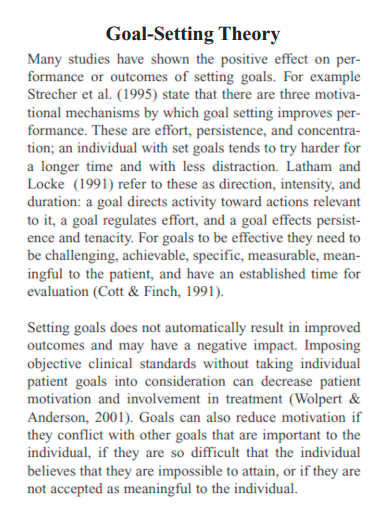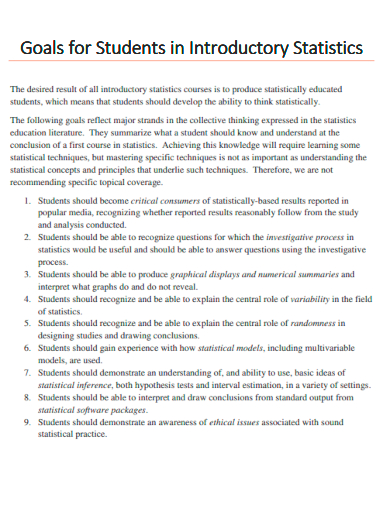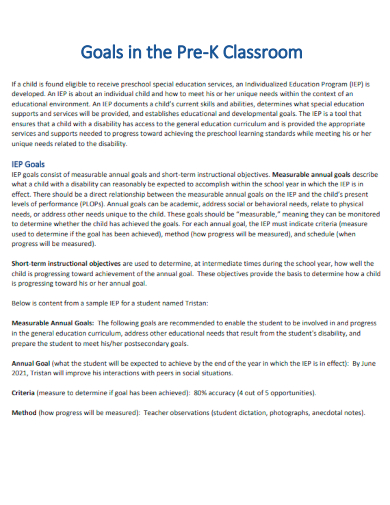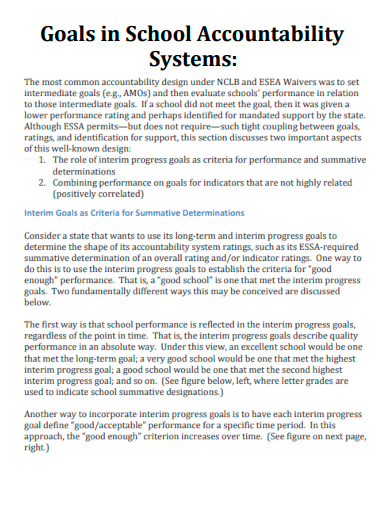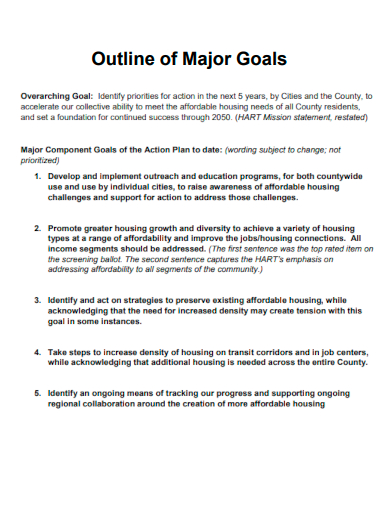Goal setting refers to a process in which an individual takes active steps to enable successful achievement of their desired outcome or result. Each of an individual’s dreams or objectives involves setting and accomplishing small and big goals. Some people will assume that they already know what their goals are. However, as they got introduced and got familiar with various concepts, achieving goals become a challenging task.
30+ Goals Samples
1. Summer Goals

2. Goals Research Summary
3. Smart Goals
4. Setting Goals and Developing
5. Putting Goals into Actions
6. Shared Goals of Care Plan
7. Goals
8. Goals for Graduate School
9. Goals in Social Information Processing
10. Performance Goals
11. Context for the Bold Goals
12. Monitor Goal Attainment
13. Regulatory Goals
14. Goals in College
15. Goals In Home Activities and Routines
16. Goal Setting for Small Business
17. Consensus Points on Language Goals
18. Goals in Person Centered Recovery Planning
19. Goals for Academic Achievement
20. Goals to Use Water Efficiently
21. Non-binding Goals in Teams
22. Goals of the Program
23. Setting and Monitoring Goals
24. Educational Goals
25. Goal-Setting Theory
26. Goals and Objectives for Gameplay and Learning
27. Goals for Students in Introductory Statistics
28. Goals in the Pre-K Classroom
29. Sustainable Development Goals
30. Goals in School Accountability Systems
31. Outline of Major Goals
What is a Goal?
A goal is known as a short statement of one’s desired outcome that one wants to achieve over a long or short time frame. It can also be referred to as a desired result that will motivate a person or group to exert effort to realize their goals. Goals can be described as specific and close-ended quantifiable objectives that are set in a fixed time frame. They can be categorized into smaller and short-term objectives which serve as checkpoints to ensure that the progress is right on track. Other templates you can use to aid you are work planners, project planners, and goal planners.
How to Set Goals
Goals are the representations of the decisions of an individual and the commitments they take to reach achievements, eliminate bad habits, and accomplish more in various areas of their lives. Goal setting enables them to focus on more important things in life by helping them determine what they want which also gives them motivation to take action. You can apply goals in any area of your life, from your personal and skills development plan, education, career plan, health, relationship, social, and more.
Step 1: Consider the Results You Want to Achieve
Before you start, consider taking a closer look at the things you are trying to achieve and determine whether it is something you really want, aligns with your values and other personal goals, and if your time and effort are worth giving to this goal.
Step 2: Set SMART Goals
After deciding on your wants, make sure that it aligns with the SMART criteria. SMART goal setting enables you to be specific about your goal so you can clearly and efficiently track your progress and determine whether you have met your goal.
Step 3: Establish an Action Plan and Timeline
Make sure to write down your goals to make sense of their reality instead of having it as a vague idea in your head. Then, create a strategic action plan to identify the most effective way to meet your goal. In your action plan, visualize the roles and responsibilities, tasks, deadlines, and milestones in a timeline that gives you a sense of urgency.
Step 4: Start Taking Action and Evaluate Your Progress
After your planning phase, you can now take your plan of action. As you progress, make sure to keep your strong motivation to achieve your goal. You can schedule an evaluation on a periodic basis to monitor progress and determine whether you are behind your timeline and make necessary adjustments.
FAQs
What are the different types of personal goals?
The different types of personal goals are career goals, financial goals, relationship goals, health goals, educational goals, self-development goals, experience goals, and community goals.
How do you define goal setting?
Goal setting refers to the clear and direct process of identifying objectives, projects, and skills an individual wants to achieve. It also includes establishing a plan on how you achieve these objectives.
How to differentiate goals from objectives?
Objectives refer to specific and actionable targets that an individual or group needs to achieve within a smaller time frame while goals are statements of one’s desired results or outcomes that they want to accomplish over a long time period.
Goals are statements that represent the desired outcome of an individual or group of people that they would like to achieve within a specific time frame. It is also a process in which an individual discovers new objectives and involves strategic planning on how to efficiently achieve these objectives. Goals provide a sense of direction and focus which motivates an individual to take action, making them feel productive.
Related Posts
Sample Meeting Minutes Templates
Presentation Speech Samples & Templates
Ukulele Chord Chart Samples & Templates
Retirement Speech Samples & Templates
Weekly Schedule Samples & Templates
Contractual Agreement Samples & Templates
FREE 9+ Amazing Sample Church Bulletin Templates in PSD | PDF
Sample Business Card Templates
Sample Cashier Job Descriptions
Questionnaire Samples
FREE 10+ Sample HR Resource Templates in PDF
FREE 49+ Sample Job Descriptions in PDF | MS Word
FREE 23+ Sample Event Calendar Templates in PDF | MS Word | Google Docs | Apple Pages
Company Profile Samples
FREE 10+ Leadership Report Samples [ Development, Training, Camp ]



